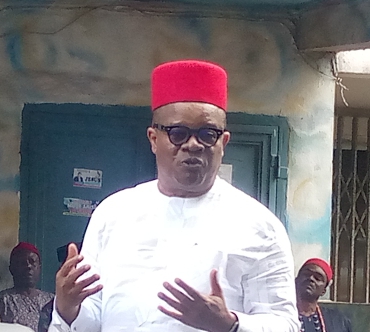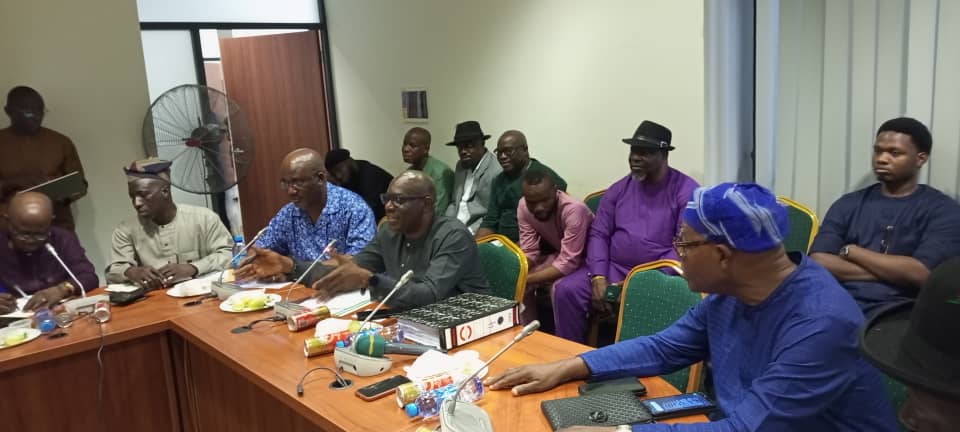
As Nigeria commemorates its 64th independence anniversary, an esteemed oil and gas specialist, Engineer Yakubu Mohammed, Chief Executive Officer of White Page International Concept Limited (WPIC), has expressed concern over the stagnation of economic growth in the country and advocated for initiatives that could steer the nation away from the precipice.
In a statement released in Abuja, while extending felicitations to the nation on its 64 years of independence, Mohammed remarked that the 64th anniversary of the country’s independence “provides us with the opportunity to reflect and conduct a thorough evaluation of the trajectory that the country is following.
“It grants us the immense privilege to introspect and identify where we erred in our 64-year journey as a sovereign nation, and to have the courage to veer off course if necessary.”
He emphasized that Nigeria merits excellence and its citizens aspire for the best, “a goal that I believe can be achieved through the unwavering dedication of all individuals.”
Mohammed asserted that Nigerians possess remarkable resilience, capable of withstanding any adversity. “What the average Nigerian requires is a conducive environment provided by the government.
This encompasses a favorable work setting, well-built roads for seamless transportation of agricultural goods, robust security for life and property, flexible fiscal and monetary policies that do not hinder small and medium enterprises (SMEs) and small-scale traders, and notably, reasonable pricing of petroleum products, which constitute the lifeblood of the nation’s economy,” he stated.
Furthermore, Mohammed highlighted that “to address the multifaceted challenges plaguing the nation, there is a pressing need to foster transparency, accountability, and good governance among leaders. Combating corruption, investing in quality education, reducing reliance on oil, stimulating agricultural and industrial growth, supporting SMEs, developing critical infrastructure, enhancing healthcare facilities at both primary and tertiary levels, tackling insecurity decisively, and fostering international collaboration are essential components for realizing the Nigeria of our collective aspirations.”
Delving into the reasons behind Nigeria’s current state despite its abundant mineral resources, Engineer Mohammed elucidated: “Our constrained progress as a nation is evident in our primary economic sector, which is the petroleum industry. Previously, we were refining our crude oil, with operational refineries catering to our domestic needs.
However, during the downturn, the refineries abruptly ceased operations, leading to the importation of refined products, a practice previously foreign to us. This occurred while other oil-producing nations like us were constructing additional refineries for local consumption and export to generate foreign exchange.
“In addition to establishing refineries, those countries were also setting up petrochemical industries to fully exploit the benefits of crude oil, whereas Nigeria seemed to lag in this value chain.”
He proposed that with strategic planning and a shift in focus, the situation could be rectified to enhance the country’s economic performance.
“As a staunch proponent of national unity, a nation can only flourish and progress when there is unity and a shared purpose. By eschewing ethnicity and religion in politics, diminishing the allure of political positions, establishing a robust and functional electoral system, and prioritizing the constitution above all Nigerians, we can attract competent leaders,” he remarked.
The CEO of White Page emphasized that several countries that gained independence around the same time as Nigeria have made significant strides in all aspects.
He remarked, “Countries like Singapore, with whom we share several economic similarities, have surged ahead of us in economic and political advancement, attaining first-world status. The case of Malaysia is no different.
“Nigeria and Malaysia, both diverse societies with federal and democratic structures, have taken divergent paths. Malaysia successfully navigated its cultural, religious, and economic challenges.”
Comparing Nigeria to countries like South Africa, Kenya, Rwanda, and Ghana, which gained independence around the same time or even later, he underscored the need for Nigeria, at 64, to undertake measures that will elevate the country’s stature.
He commended the recent announcement by the President through the Federal Executive Council for the approval of the Economic Stabilization Bills. These bills involve amending income tax laws, promoting exports of goods and services, reforming the exchange rate regime, federal and state governments collaborating to waive certain taxes on small businesses and vulnerable populations, and enhancing foreign exchange liquidity, all of which are commendable steps towards the nation’s economic growth.
He urged the political class and elite to champion peace, enduring unity, and foster genuine reconciliation among the diverse ethnic groups.
Furthermore, he called upon citizens to leverage the occasion of the country’s independence anniversary to explore and harness the vast potentials of the nation.





